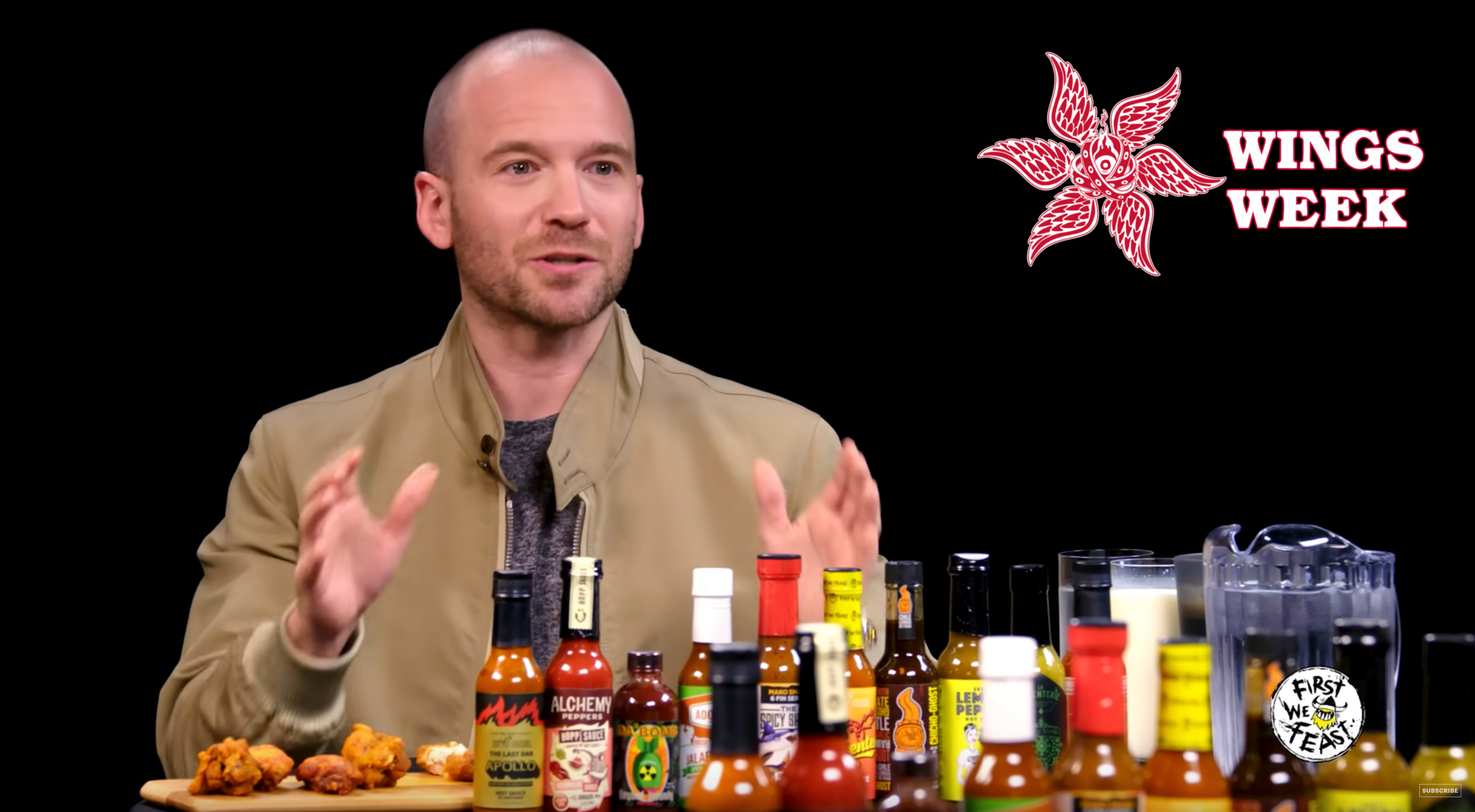Last month BuzzFeed tried—and failed—to find a buyer for First We Feast, the media company that produces the hit show Hot Ones, where host Sean Evans interviews celebrities as they eat increasingly spicy chicken wings. According to reporting by Bloomberg, this is because BuzzFeed was trying to sell First We Feast for $70 million in an attempt to dig itself out of its $100 million debt hole, and no one wanted to pay that steep a price.
BuzzFeed’s failure to sell the company demonstrates just how much the hubris and growth-at-any-cost mindset of the last decade in media have not only left the industry in a smoldering wreckage, but are also impeding the potential of new media properties.
BuzzFeed built its business on total virality and exponential growth. It wasn’t enough to just be a popular media company—it had to attempt to become a billion-dollar business that touched every corner of the media and consumer market. Now it’s trying to pay down its debt by using that same rhetoric to offload what is arguably its most valuable asset, Hot Ones, at a price that only makes sense if you expect exponential growth from it, too. BuzzFeed is the media company that cried wolf one too many times, and people aren’t buying it anymore—literally.
At one point, social media sites drove 75 percent of BuzzFeed’s traffic. After the 2016 election, social media companies ended the newsfeed free-for-all and traffic across all news organizations plummeted, but BuzzFeed was hit especially hard. Still, the quest to grow bigger and make more money overtook even basic self preservation instincts, and BuzzFeed founder Jonah Peretti began making a series of increasingly bizarre and desperate decisions.
Back in 2021, BuzzFeed took on $150 million in debt to finance the acquisition of Complex Networks, which owns First We Feast, the media company that produces Hot Ones. It was a gamble that the acquisition would help contribute to a dreamy billion dollar valuation once the company went public through a Special Purpose Acquisition Company, or SPAC. The gamble didn’t pay off; the loan comes due Dec. 3 of this year, and BuzzFeed still doesn’t have the cash to pay it, despite selling Complex (while retaining First We Feast) for $108.6 million, shuttering its award-winning newsroom and pivoting to advertorial AI quizzes. BuzzFeed’s stock is currently trading at a little over $3 and dozens of former employees filed claims with the American Arbitration Association, alleging that the company bungled communication ahead of the IPO and prevented them from selling 900,000 shares of stock before the price dropped.
Ten years ago, BuzzFeed ruled certain parts of the internet. Its social-first strategy and cadre of excellent-but-underpaid twenty-something writers made it one of the most popular news sites of the 2010s. It broke the internet over a poorly lit dress. It produced what is perhaps the most memorable Facebook Live video of the era. It seemed like the nimble media company of the future that could do it all—it could break important stories, win Pulitzers, and somehow still be profitable and fun. There was free lunch in the office twice a week and there was always a new celebrity in the office on some press tour. One time Chrissy Teigen delivered chicken nuggets to employees on a hoverboard, for no reason. It was alluring, and it was an illusion.
As far as I know, Peretti didn’t start the site out of some noble commitment to journalism, which came later and was always a nice feather in BuzzFeed’s cap. In retrospect the entire endeavor looks a lot more like a sandbox for Peretti’s ideas about virality and identity; in 1996, he published a paper called “Capitalism and Schizophrenia: Contemporary Visual Culture and the Acceleration of Identity Formation/Dissolution.” BuzzFeed always more closely resembled a tech startup than a media company, with its emphasis on scale above anything else. Since 2008, BuzzFeed has taken on $497 million in VC funding over 12 rounds in increasing attempts to expand and take over everything, leading to a studio for developing IP into films and TV shows, a whole universe of merch, and even airport retail stores. Over the course of BuzzFeed’s existence, the media industry, the internet, and social media have flattened into “content,” so now breaking news articles, sponsored listicles, and influencer videos are all competing with each other for your finite attention on the same feed.
One of the undisputed winners of this competition is Hot Ones. After more than 300 episodes, Hot Ones has become a crucial stop on celebrities’ press tours. The success of the show can largely be attributed to one very clever insight: If you place celebrities in physical distress, they are likely to abandon their media training and yield meme-able moments that are good for publicity. The show has been nominated for two Daytime Emmys, and First We Feast has 13.6 million subscribers on YouTube.
According to Bloomberg, Hot Ones staff has been “frustrated with their owner, which they feel hasn’t given them the resources to invest in expanding the business of a hit show.” Under the right stewardship, Hot Ones could flourish as a sustainable, successful business with no pretensions of hockey stick growth. With its lines of merch, games, and hot sauces, Hot Ones is playing all the BuzzFeed hits, but with one crucial difference—it’s relevant. But that relevance isn’t worth the cost of BuzzFeed’s debt, which threatens to obliterate the husk of BuzzFeed that’s leftover from the last seven years.
Even if BuzzFeed manages to raise the cash to pay back its creditors by December, the mismanagement of one era will bleed into another, and the next generation of media will end up getting burned.
(Disclosure: The author worked for BuzzFeed News in 2017 and was laid off in 2018.)






